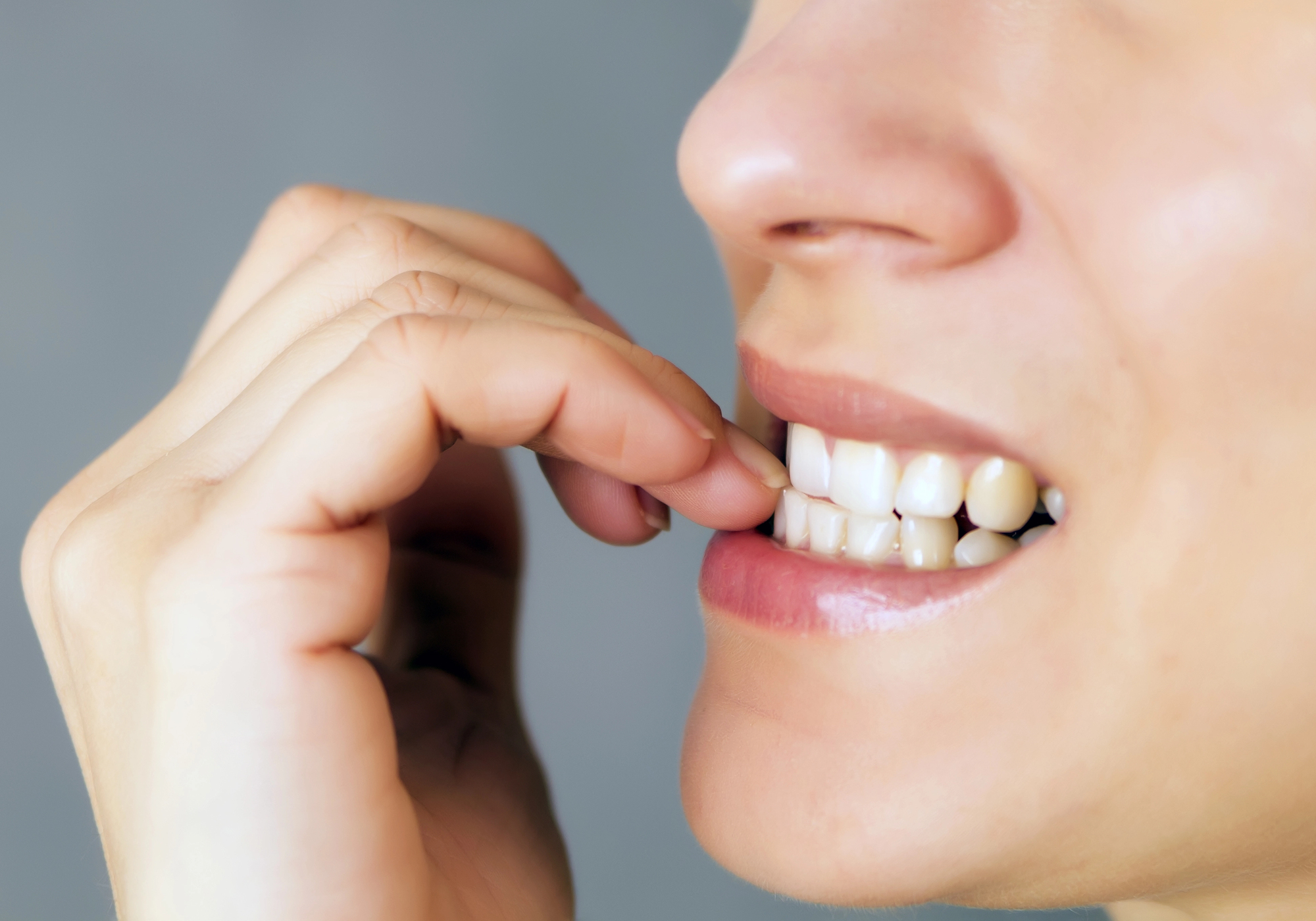How to Help Your Kids Prevent Cavities
You work hard to keep your children healthy, from packing healthy lunches to making sure they get enough sleep night after night (and bedtime excuse after bedtime excuse). And like...

We all know the basics of good oral hygiene – brush twice a day, floss regularly, and visit your dentist for check-ups. But did you know that there are many common habits that can quietly sabotage your dental health?
Unfortunately, many seemingly harmless behaviors can lead to tooth decay, gum disease, and other oral health issues. Let’s uncover some of these not-so-obvious bad habits and learn how to break them for a healthier smile.
Nail biting is common. It is often triggered by stress, boredom, or anxiety. But did you know that it can also have a negative impact on your teeth? When you bite your nails, you’re putting unnecessary stress on your teeth, which can have some bad outcomes.
In addition to the chipping hazard, your nails are a hiding place for bacteria, which can easily transfer to your mouth and cause infections.
To kick the nail-biting habit, try keeping your nails trimmed short, using bitter-tasting nail polish, or finding alternative stress-relief methods like squeezing a stress ball.
Maybe this one isn’t such a secret since sugar is a well-known problem for dental health, but sugar can hide in a lot of foods you might believe are healthy.
Some sneaky sources of sugar include:
When you consume foods and drinks with lots of sugar, the bacteria in your mouth feed on the sugar and produce acid as a byproduct. This acid erodes tooth enamel, leading to cavities and decay.
To minimize sugar’s impact on your teeth, try to limit your intake of sugary treats and beverages. When you do indulge, rinse your mouth with water afterward to help wash away the sugar.
Ice in your drinks is fine, but chewing on ice is a no-no. The hard, cold texture of ice can cause microscopic cracks in your enamel, making your teeth more vulnerable to sensitivity and decay. Over time, habitually crunching on ice can even lead to chipped or broken teeth.
If you find yourself craving ice, try switching to cold water or sugar-free gum instead. And if you have persistent ice cravings, talk to your doctor – it could be a sign of an underlying nutritional deficiency.
Brushing your teeth twice a day is the basis of good oral hygiene, but more pressure doesn’t necessarily mean a better clean. In fact, brushing too hard can actually damage teeth and gums. In addition, using a hard bristled brush can cause similar damage, including enamel erosion and gum recession.
To avoid over-brushing, use a soft-bristled toothbrush and a gentle, circular motion. Think of massaging your teeth rather than scrubbing them. If the bristles of your toothbrush are flattened or frayed, you may be brushing too hard.
Your teeth are designed for chewing food, not for opening packages, cutting tape, or holding objects. Using your teeth as tools can put them at risk for chips, cracks, and other damage.
What do we mean by using teeth as tools?
Use the proper tools instead of using your teeth. Scissors, pliers, and bottle openers are designed for these tasks. Your teeth weren’t!
By being mindful of your behaviors and making a conscious effort to break these habits, you can do even more to keep your teeth and gums healthy.
If you have tooth damage from these habits or any other cause, don’t wait. Call our office today to schedule an appointment.